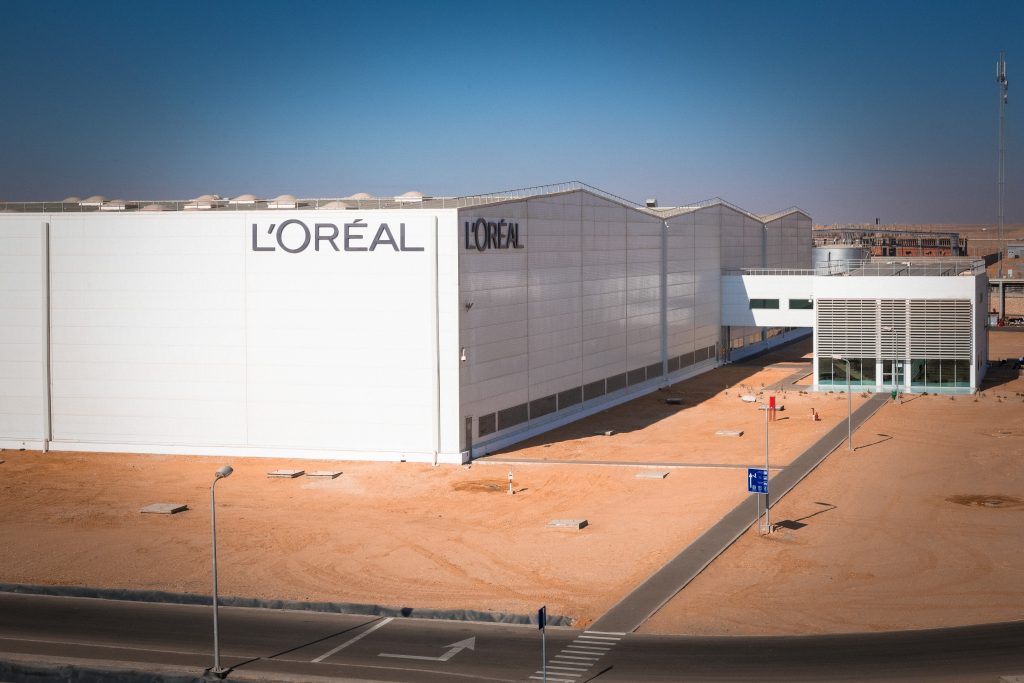Four years since its launch, L’Oréal Egypt is witnessing dynamic growth in consumer demand from the MENA region, while keeping up with trends in e-commerce and sustainability. By Mehak Srivastava.
In order to attract global investors, Egypt introduced a number of key incentives in 2017 under its new investment law, including tax exemptions, subsidised utilities, guaranteed residence for investors, and more.
France is a leading economic partner for Egypt, with the former’s significant economic venture in the Middle Eastern nation bolstered by the presence of 160 subsidiaries of French companies, employing more than 30,000 people. According to French Customs, in 2017, France and Egypt posted an increase of 21.8% in their trade, which totalled €2.5bn. French multinationals like Schneider Electric, Saint Gobain, Carrefour, and L’Oreal, plus several others, recently announced that they would increase their investments in Egypt.
An article in Cosmetics Business, penned by Paul Cochrane, highlighted that Egypt’s cosmetics market “maintained steady growth over the past year [2017] despite the downturn in the economy, the depreciation of the Egyptian pound and some serious regulatory challenges.” With the International Monetary Fund (IMF) projecting Egypt’s economy to grow 4.5% in the fiscal year 2017/18, Cochrane expects that there is much room for the beauty industry to bloom and grow. In fact, research carried out by Euromonitor International suggests that the market actually grew by 18% year-on-year, in value terms, in 2016, totalling LE1.6bn ($90.5mn at the time). The study suggests that the positive performance of lip products, most notably, lipsticks, and brands growing ability to tailor their products and their adverts to attract more customers, especially those under 15 years of age, whom constitute 31.3% of the Egyptian population, according to the Central Agency for Public Mobilisation and Statistics, has significantly increased their sales.
L’ORÉAL EGYPT
With a unique international portfolio of 34 diverse and complementary brands, the L’Oréal Group generated sales amounting to €26.02bn in 2017 and employs 82,600 people worldwide. L’Oréal is present across all distribution networks: mass market, department stores, pharmacies and drugstores, hair salons, travel retail, branded retail, and e-commerce.
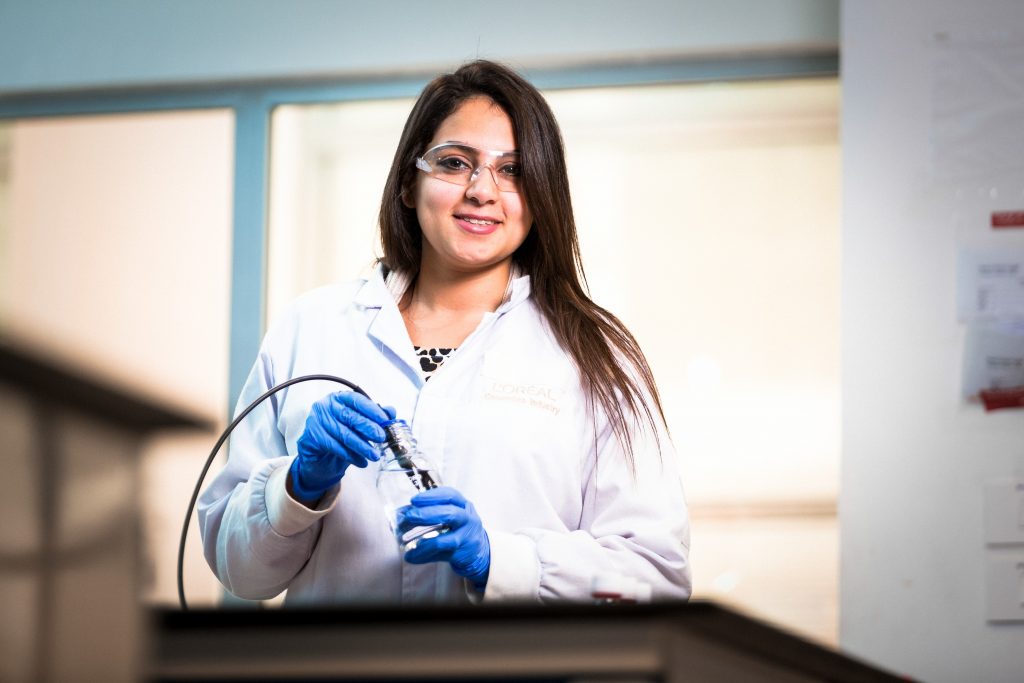
(David Degner / Freelance)
L’Oréal’s first factory in the Arab World, located near Cairo in 10th of Ramadan Industrial City, was opened in 2014. The plant mainly serves as the production hub for L’Oréal’s consumer products division in the Middle East and North Africa (MENA) region. In keeping with the increasing demand from consumers across the region for innovative and high-quality beauty products, the production site includes manufacturing, packaging, and warehouse facilities. Today, the subsidiary covers a range of brands from the group’s four divisions, offering to the Egyptian market 14 of its 34 global brands, including L’Oréal Paris, Maybelline New York, Garnier, Lancome, Giorgio Armani, Ralph Lauren, Vichy, La Roche, Posay, L’Oréal Professionnel, and Kerastase.
Yassine Bakkari, operations director, L’Oréal Middle East, remarks: “Our efforts in Egypt stem from the significance of MENA as a strategic market for L’Oréal’s growth. We set out to accelerate our development in the region by rapidly innovating consumer-centric products tailored to the region’s consumers. That’s why we built the L’Oréal Cairo Factory.”
Bakkari explains that in 2010, L’Oréal conducted an in-depth study of the location to decide on the most efficient place to have our factory, considering infrastructure, industrial expertise, and supply chain network to provide the highest flexibility to all markets; and Egypt emerged as a candidate with clear potential.
Production site
With initial investments of €50mn, the facility is spread over an area of 17,000sqm, and was among the top three brands in the Egyptian market. The factory started production in 2013 and has since increased its production to reach almost 100 million units with an average annual growth of 10%. During a 2017 conference, Benoit Julia, managing director for L’Oréal Egypt revealed that the facility has 473 employees, 99% of whom are Egyptian, plus 200 factory employees.

“This factory primarily serves as an export unit, exporting 85% of the products out of Egypt,” notes Bakkari. “Featuring state-of-the-art technology and automation lines, the factory contributes significantly to the local community by procuring 80% of its packaging material and 25% of raw materials locally.”
The L’Oréal Cairo Factory produces hair care, hair colouration, and skin care products that are packaged in various types of jars, tubes, bottles, and sachets thanks to the 13 new-generation packing lines. The current production capacity of the factory is 120 million units, but it can handle more than 300 million units in peak capacity.
The plant features modern technologies such as fully automated processing skids with automated recipe control, automated packing lines, and fully integrated worldwide enterprise resource planning (ERP) to optimise supply chain and quality management. The factory is an ISO 9001 (Quality) and ISO 22716 (Cosmetic Manufacturing Good Practices) certified facility. In addition to this, the factory features a robust safety infrastructure and culture, which is periodically reviewed and improved internally by the group.
Sustainability
The brand’s social and environmental responsibility programme “Sharing Beauty With All”, was launched in 2013, aimed at making L’Oréal a model company in terms of sustainable innovation, production, and consumption. By 2020, the company aims to have 100% of its products to have an improved environmental profile, plus reduce the environmental footprint of its plants and distribution centres by 60% from a 2005 baseline.
The L’Oréal Cairo plant is the first LEED – Leadership in Energy and Environmental Design – certified plant in Egypt. These consist of a US quality standard which defines excellence in terms of design and building construction process with regard to key aspects of sustainability, including water and energy efficiencies, atmosphere management, materials and resources utilisation, and environmental quality.
Sustainability key results in 2017
The plant has reached the following environmental performance in 2017 vs 2015:
-36% in CO2 emission | -28% in water reduction| -28% in waste reduction
Bakkari mentions: “As with all of L’Oréal’s global stakeholders, L’Oréal Egypt too has followed the principles of “Sharing Beauty with All”. At our Egypt Facility, in just two years we have reduced CO2 emissions by 33%, water by 28% and waste by 28%.
In early 2017, L’Oréal Egypt received the Top CSR Industrial Leaders Award, presented by the Federation of Egyptian Industries 2016. The award came in recognition of the company’s efforts in protecting the environment and supporting the communities where it operates.
E-commerce
In 2017, L’Oréal global noted that e-commerce accounts for 8% of group sales, with social networks, influencers, consumer engagement playing a vital role in their marketing strategies.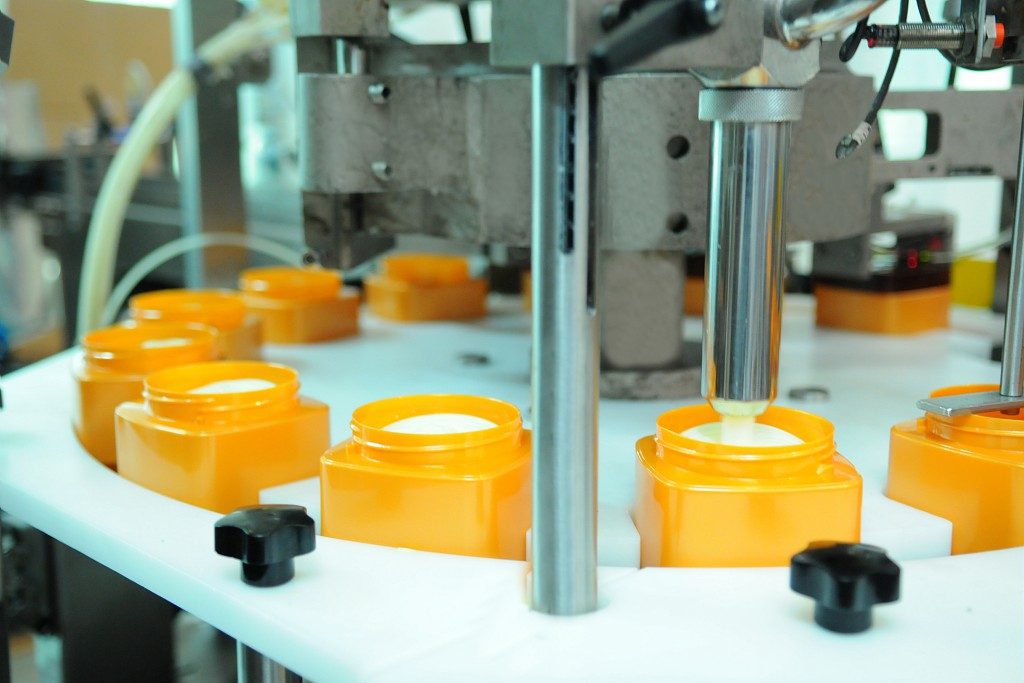
“E-commerce has changed the game drastically in the Middle East,” remarks Bakkari. “It is expected to grow at 20% CAGR by 2020 with beauty as the most dynamic category, growing at 61% CAGR. With this assumption, beauty is estimated to grow from 3% to more than 10% of the total e-commerce market in the Middle East.”
An article by Beauty Business Journal reveals that while consumers in the developed and emerging markets of the Middle East are happy to shop for beauty products online, brands have yet to attract the enthusiasm of these consumers to the benefits of online shopping. Although overall online product sales in the region may be growing, however slowly, beauty products still only make up a fraction of the total spend.
Shopping in physical stores is regarded by many consumers in the Middle East as a source of entertainment; going to malls and markets is seen as a form of recreation. One of the key motivations to online shopping, namely lower prices, does not provide enough incentive to change and the prospect of saving money online is unlikely to modify this behavior. This preference for brick-and –mortar stores is a key reason why major international beauty brands—including L’Oréal— have been reluctant to set up their own e-commerce sites in the region. L’Oréal markets its products in the region through existing e-commerce channels.
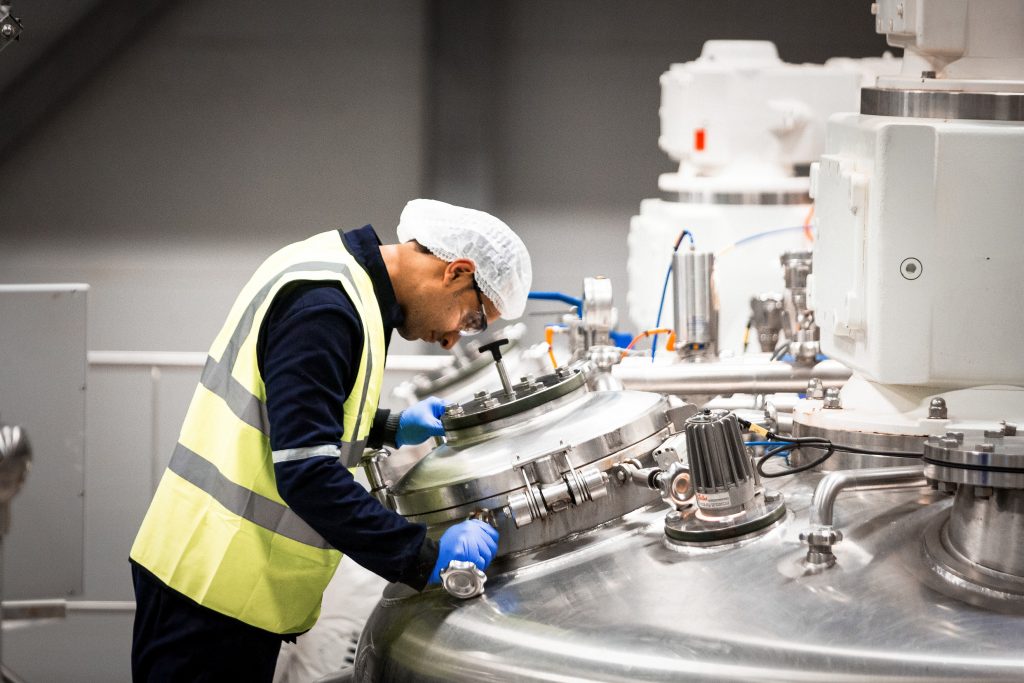
(David Degner / Freelance)
Bakkari continues: “To meet the demand of the online and offline market, we have developed an omni-channel approach. As for supply chain, e-commerce is a disruptive change as we need to deliver anything that the consumer needs, anytime and anywhere. In line with the trends, we have restructured our supply chain operations with agility, cost-competitiveness and time to market (last mile delivery) in mind. To strengthen our position within the e-commerce universe, we developed our e-commerce business through pure players such as Souq.com, Namshi, Boutiqaat to name a few and e-retailers such as Sephora, Lifestyle, and Faces; as well as our own direct to consumer platforms such ae.Kerastase.com, www.kiehls.ae and many more that we will announce very soon.”
Market growth
Last month, L’Oréal announced plans to invest in the fund Partech Africa, an investment fund launched in early 2018 within Partech, and dedicated to the development of tech projects in Africa. This investment is in addition to L’Oréal’s previous equity investments in venture capital funds (Partech International Ventures, Founders Factory, Raise Investissement).
L’Oréal plans to forge partnerships with start-ups and entrepreneurs active in the development of innovative products and services that facilitate access to consumers located in remote areas or informal environments.
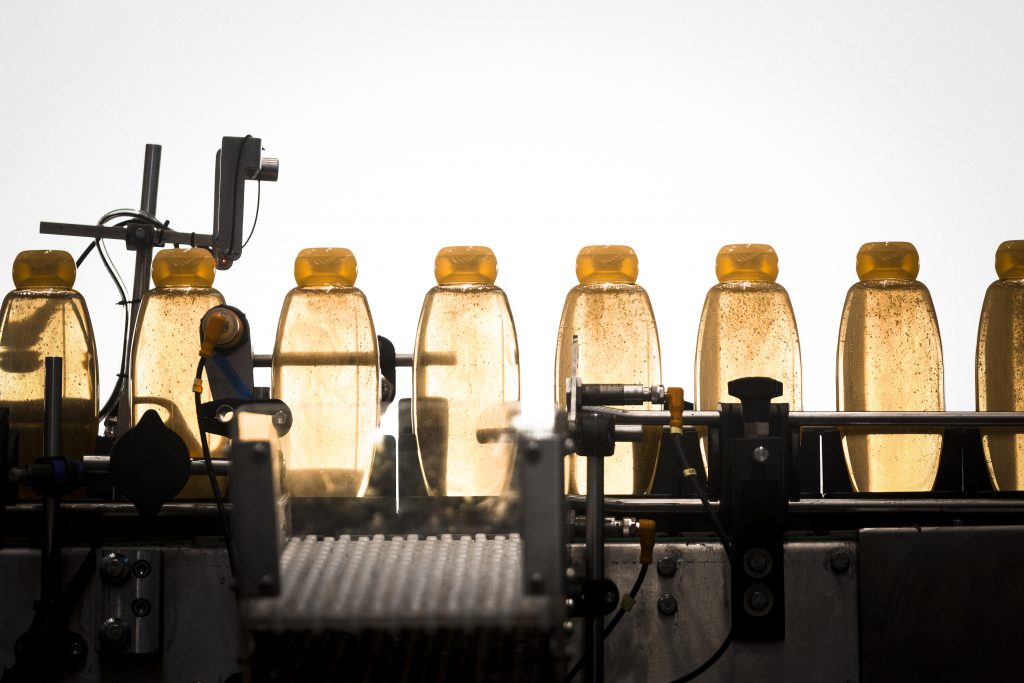
The brand’s market share in the countries that it operates in Africa and Middle East in 9.8%. According to the company’s annual report, despite substantial declines in these markets, the situation is stabilising in the Gulf states. Egypt’s growth was declared “dynamic”.
Says Bakkari: “The Middle East continues to be a dynamic market with significant opportunities, particularly in Saudi Arabia and UAE. Our upcoming innovations linked to the diversification of distribution channels and e-commerce will play a key role towards achieving our ambition and strengthening our leadership in the industry. Part of that is accelerating the opening our free-standing stores across the region including Nyx Professional Makeup, Kiehl’s, Urban Decay and Roger & Gallet.”

